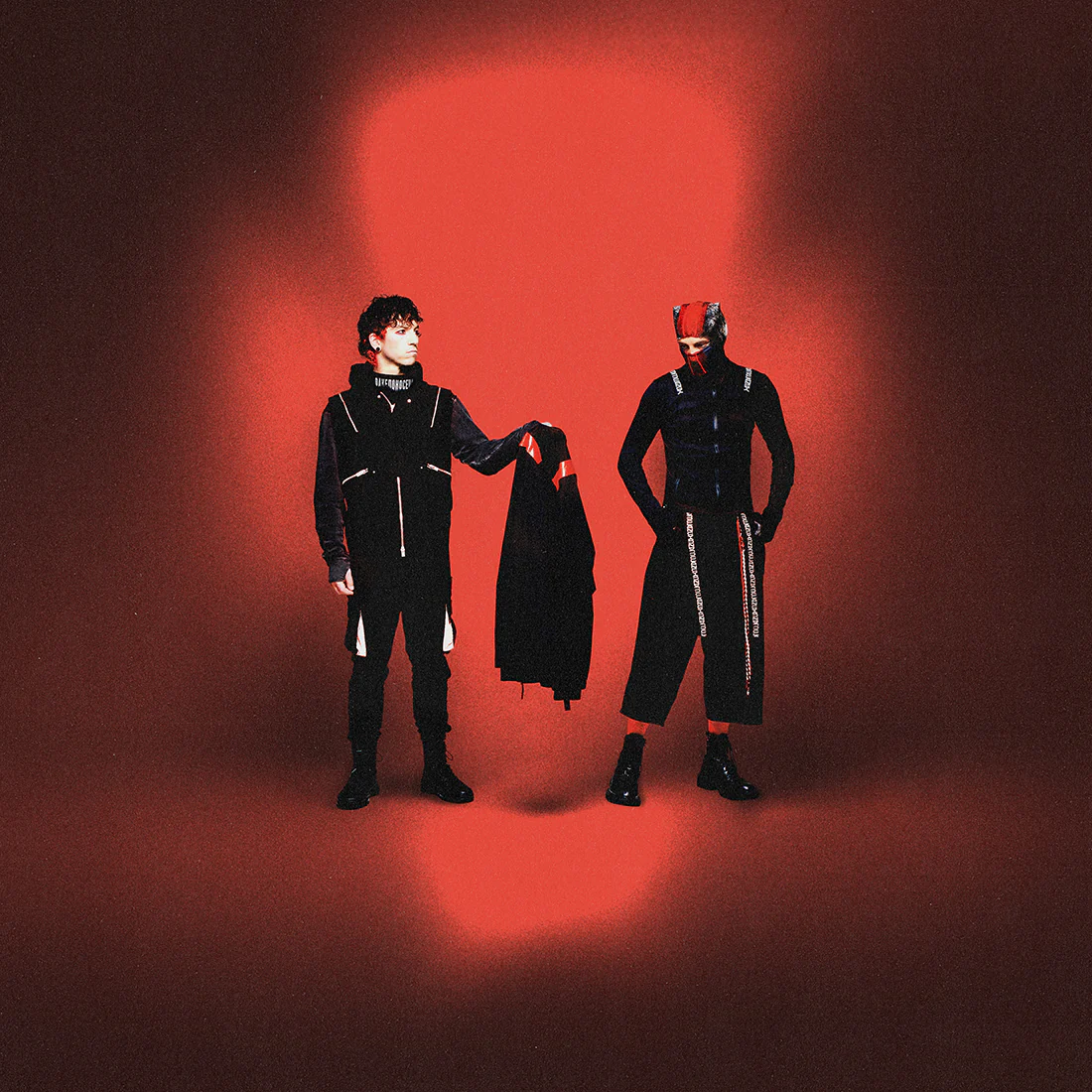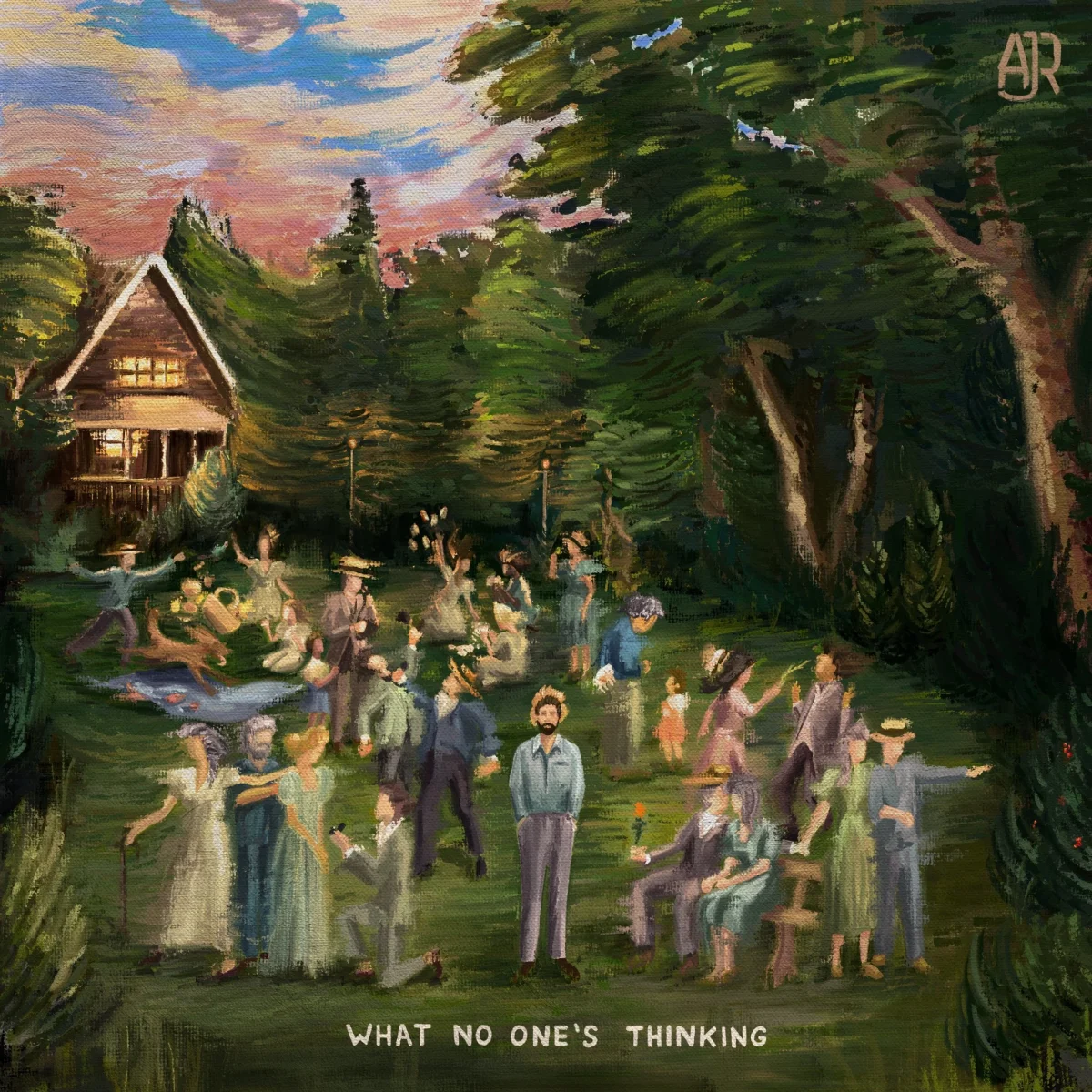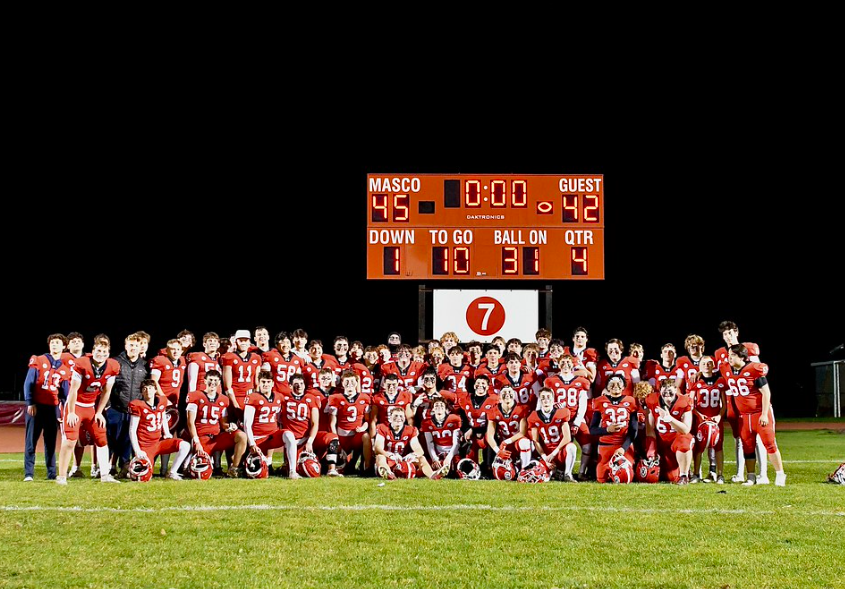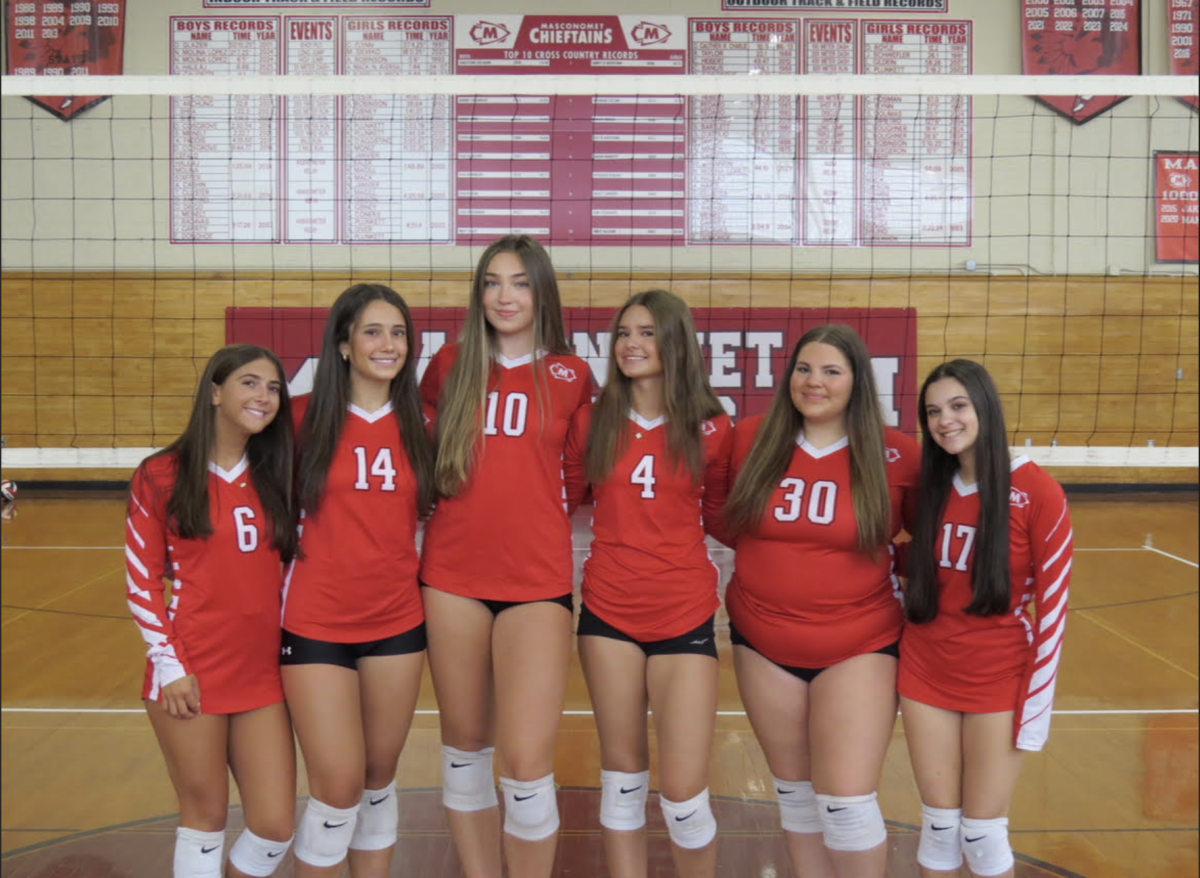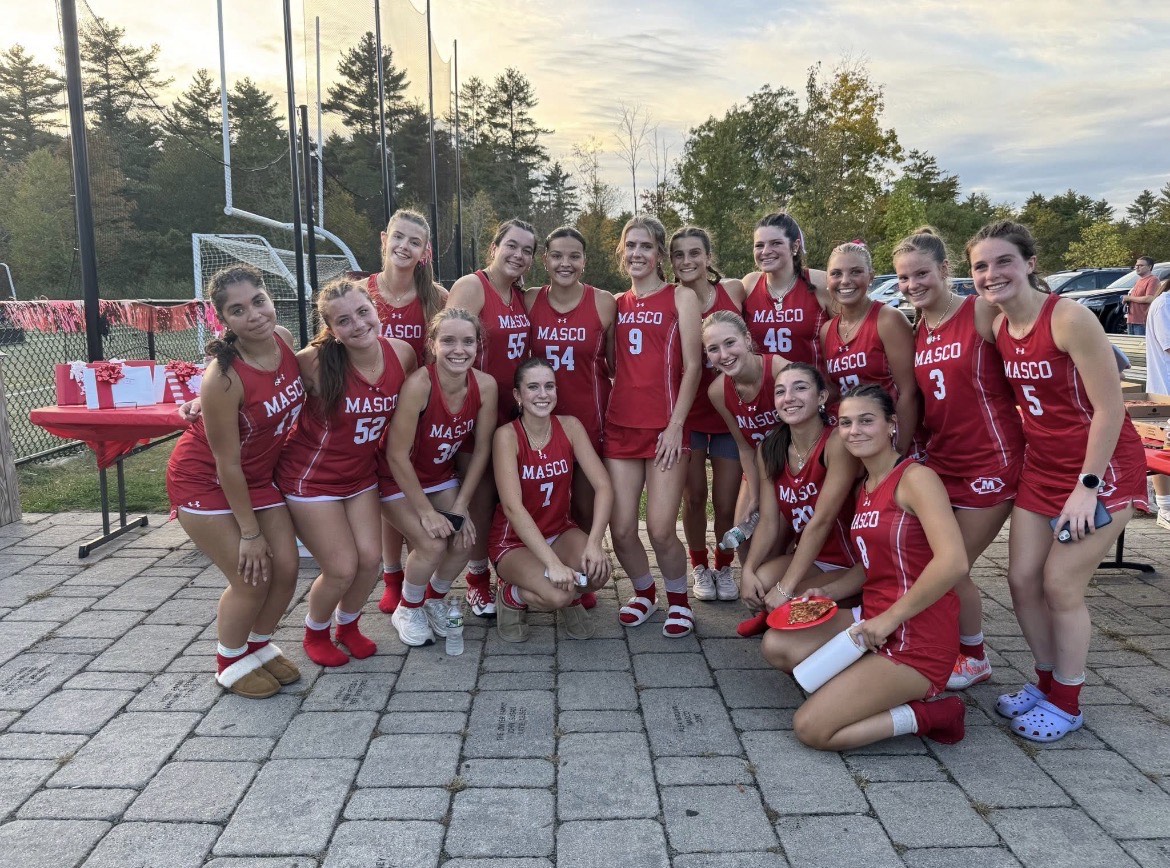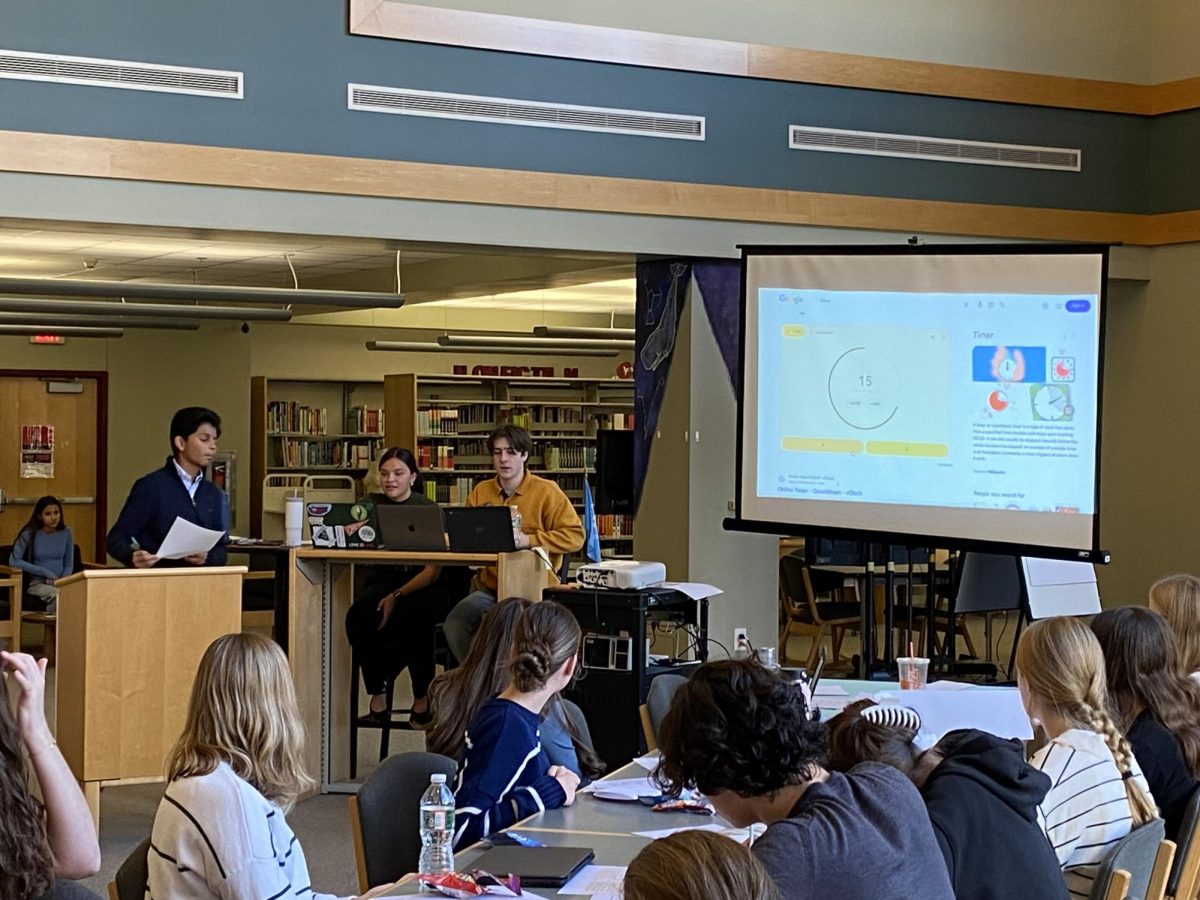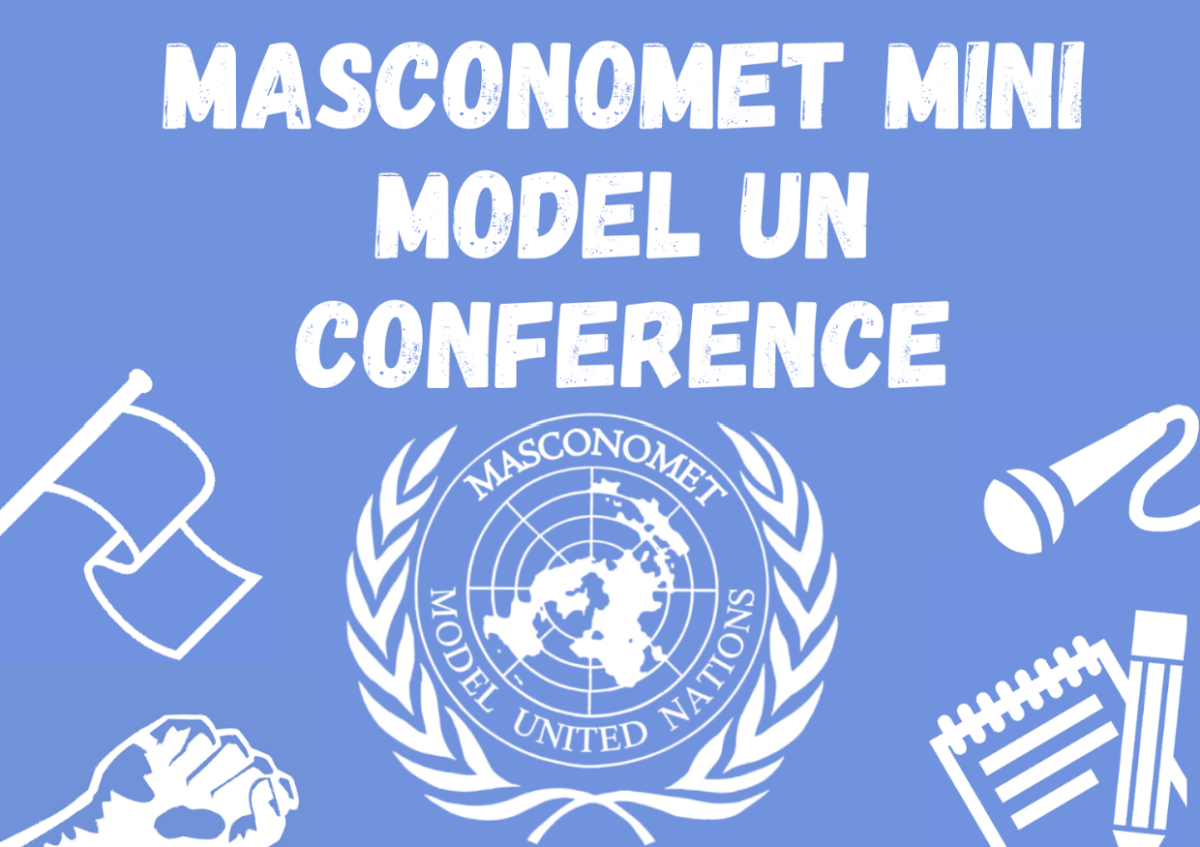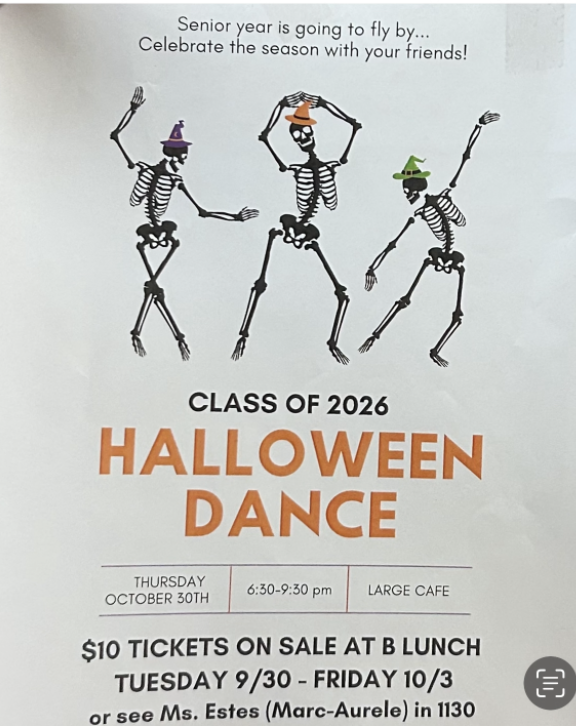Rocketry Club is a unique club at Masco that allows students to design, create, and build their very own rockets from scratch to launch and to participate in competitions.
Language Teacher and Advisor Ryan Quadros has been the advisor for the club for many years and had even seen the club go through Covid.
“It was restarted the year after hybrid learning when there were new students who wanted to start it back up,” said Quadros. “I’ve been the advisor for at least eight years now. The founding members from the first years of our Rocketry Club graduated college last year.”
Quadros and a small band of students were the ones to propose the club to the school committee. Due to his interest in rocketry, aerospace studies and astronomy, it was an easy decision to become the advisor.
“Luckily, in the first year, we had quite a few students sign up. I was glad to see that there were students who shared my passion,” said Quadros.
Sophomore Christina Connelly joined the rocketry club her freshman year, and wanted to join because she likes engineering and astronomy and building rockets caught her interest.
“What surprised me when I joined was how close the kids are in the club,” said Connelly. “I think it’s great that everyone gets along and works well with each other.”
Quadros had no formal education in rocketry or engineering, but expressed that the hobby of it was his teacher.
“There are a lot of skills you pick up over the years, especially by making many mistakes and learning from them,” said Quadros.
Connelly said that the process for building rockets is very long, but very fun.
“There are challenges we face that we need to fix on the spot so that the whole rocket doesn’t go to waste,” said Connelly. “It is so fun to build and it’s fun to work with other people.”
Quadros hopes that the students can walk away with the skills of being able to work as a team to overcome obstacles and being able to work towards a goal.
“I want them to learn from their mistakes and use information to inform their decisions,” said Quadros. “In line with this, I also want them to have fun. Acquiring extra skills is an added bonus.”
The supplies needed for building rockets are very specific, so the club orders them from specific rocketry vendors. Supplies that aren’t so specific for rockets like tools, wood, and adhesives are purchased online or at local stores.
“Due to the volume of schools and teams in this national competition [TARC], manufacturer supplies run out very quickly,” said Quadros, “so we have to purchase a lot of materials early and fast. We are lucky that we have received grants from charitable donors to help us with these purchases, including parents and the MEF.”
Senior Treasurer Jake Testa has been a part of the club for four years and one of his responsibilities is the supplies.
“When orders come through for parts, I’ll sign off on checks and make sure the budget is in order,” said Testa.
He joined the Rocketry Club after seeing it at the freshman activity fair.
“I wanted something to stay rooted to, something to have some sort of consistency over the next four years. I had a few things like track and band, but Rocketry Club was something that I could always turn to to do after school. It’s also kinda cool to launch rockets,” said Testa.
The American Rocketry Challenge, or TARC, is what the Rocketry Club competes in. The challenge has been around for over twenty years.
“Students from our club two years ago wanted to join, thinking it would be a great challenge. Our team has been working on it since,” said Quadros.
The club wastes very little time with building rockets and started designing them as early as mid-September.
“First year club members usually build their own, smaller rockets called the wind rockets that they get to keep at the end of the year,” said Quadros. “More experienced members divide into two subteams; each one building a different model of their design of a competition rocket.”
The club then has a mini-competition to see which subteam’s model has the best chance of winning the competition.
“We design and build rockets that we think will compete well with the other schools in the competition,” said Connelly.
The winning rockets then need to be replicated so they can continue to be used throughout the year.
“After choosing the winner, the whole team then builds multiple copies of this rocket for the rest of the season as needed. If rockets are damaged, students will repair them or reuse parts,” said Quadros.
The models of the rockets can take time to build, and depending on what needs to happen, it can take weeks.
“The rockets we’ve been making this year take a little longer because we have technology to put in there now but if we have all the parts lined out it may take a few days,” said Testa. “But if we need to make body tubes or nose cones, it can probably take closer to a week because stuff needs to dry and we need to laser cut stuff,” said Testa.
When it comes to testing their rockets, the club tries as often as they can.
“We start testing and launching rockets as soon as our first models are completed, which is usually around November,” said Quadros. “This also happens to coincide with the end of the fall sports season so we end up with full access to Masco’s fields.”
How often they launch in a week varies depending on the weather.
“We fly until our qualifying launch in April,” said Quadros.
The TARC competition had been the biggest change to the club since it started, as the club was first just about building, launching and having fun.
“Entering the TARC competition brought our team’s skills and purpose to a high level,” said Quadros.
The club members have also proposed having the rocketry competition and building become an aerospace elective along with a club component; something similar to what the DECA class and club at Masco do now.
“Ultimately, the direction of the club will always be up to the students and their leadership,” said Quadros.
The primary objective of the club for this year is the current competition and to win, however the competition has slightly varied from last year.
“Every year has different parameters. Parameters being how high the rocket goes or if you have to have an egg inside of it that can’t break,” said Testa.
The club’s qualifying launch is scheduled for Saturday April 5 in Acton Massachusetts.
“If we score low enough, we will be invited to compete with the 100 best teams from across the country in Virginia. This year there are over one thousand teams in the contest,” said Quadros.
Connelly recommends that anyone who is interested to come and join the club.
“We do much more than just make the rockets,” said Connelly, “There’s also all the science behind the wind and angles of the rocket that I know people enjoy.” “It’s also a great way to meet new people. I have made many friends over the two years I have been in rocket club and it’s overall a lot of fun.”
Testa agrees with Connelly that if someone is interested, then they should come and try it out.
“Give it a shot. We’ve got a group of kids who are really interested in rocketry. Our teacher is very passionate and very good at what he does and I believe that it’s worth it,” said Testa. “Sticking with it is definitely a good investment because it allows you to participate in TARC more freely and you can see the fruits of your labor with the rockets that we make and launch.”



